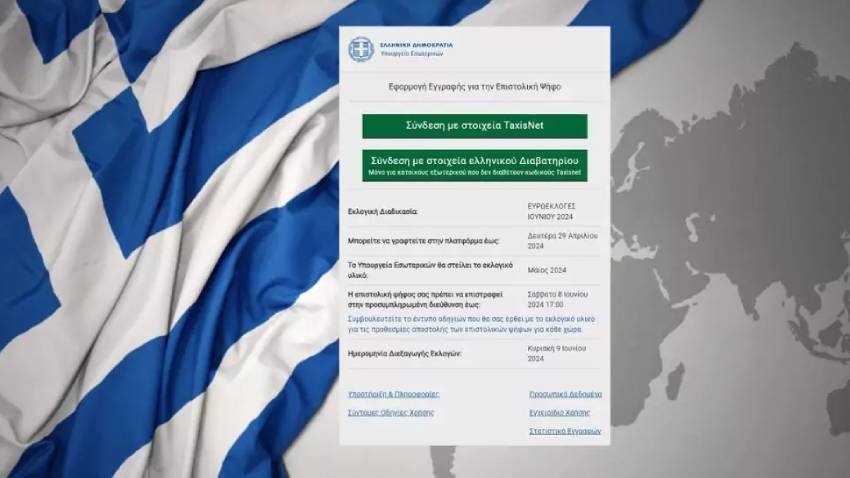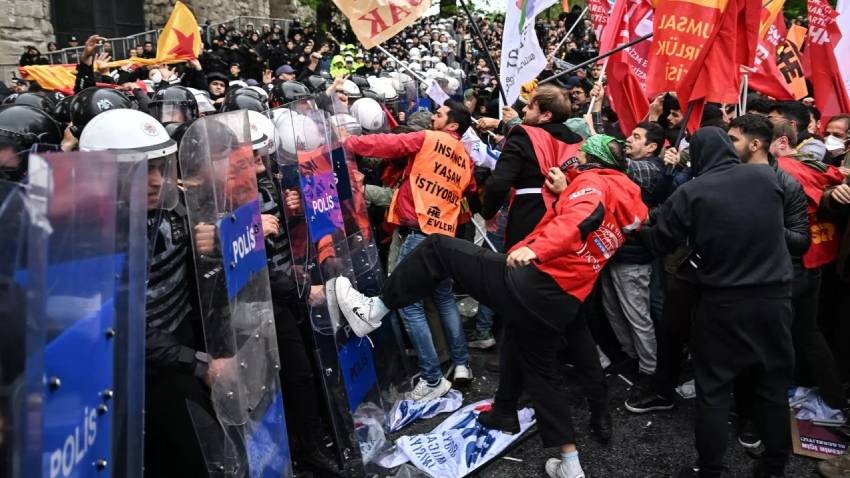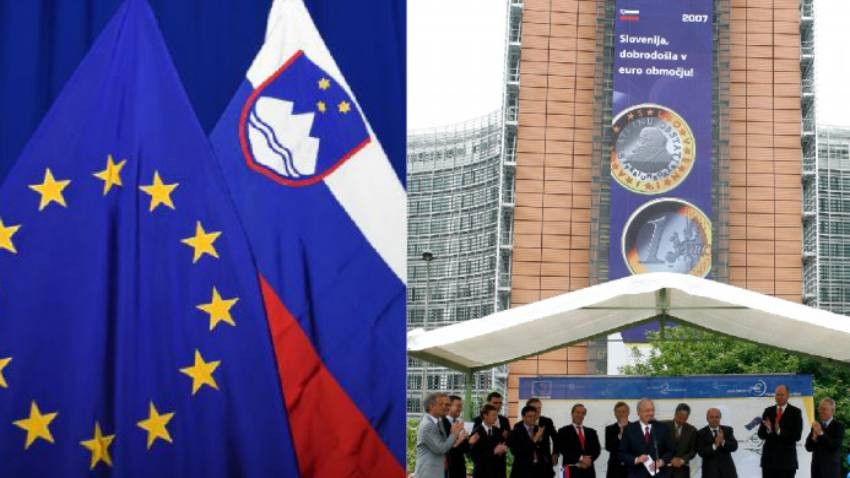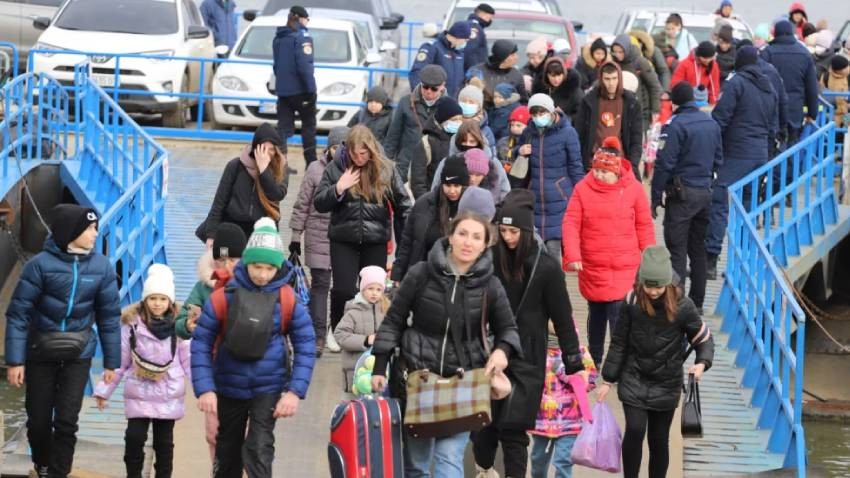Many Greeks choose the new option of voting by mail
More than 157,000 Greek citizens have registered to vote by mail at the election for European Parliament on 9 June, the Kathimerini newspaper writes, citing official data. Around 116,000 of the people who want to vote by mail live in Greece; and almost 41,000 – in 115 countries around the world. Under a law adopted in 2024, voters wishing to exercise their right to vote in the election for European Parliament by mail have to register on a portal created especially for the purpose no later than 40 days before the election. The envelopes with the votes will be received by a special commission for collecting the votes by mail. The voters will receive confirmation, via email, that their vote has been received. These votes will be counted at the same time as the counting of the other ballots, the Bulgarian news agency BTA reports.
More than 200 arrested in Istanbul on 1 May
The police in Istanbul used tear gas and brute force against demonstrators who decided to mark Labour Day, 1 May in Taksim Square. “210 protesters have been detained after refusing to heed the warnings,” wrote Interior Minister Ali Yerlikaya on X. The clashes broke out when a group of demonstrators carrying flags and placards tried to break through a barricade to reach Taksim Square. From the previous night, metal barriers were put up around Taksim Square, and the minister of interior warned that the demonstrators, led by the trade unions, will not be allowed to enter the square. Taksim Square, with its monument to the founder of the Republic of Turkey Mustafa Kemal Atatürk, is an emblematic place for millions of working people, the Bulgarian news agency BTA writes. In this square in 1977, around 40 people were killed and more than 200 wounded during a provocation on 1 May. Since then, flowers and wreathes have been laid down on 1 May every year at the monument in memory of the casualties. For several years however, the authorities have banned any 1 May events there, leading to clashes between police and protesters every year.
Slovenia in the EU 20 years later: What has changed and how?
Slovenia, alongside Estonia, Latvia, Lithuania, Poland, the Czech Republic, Slovakia, Hungary, Malta and Cyprus, became a member of the European Union on 1 May, 2004. How has the country changed during this period – the Bulgarian news agency BTA gives the answer. In the 1990-2004 period, the population of Slovenia remained unchanged, but in the period from 2004 until 2023, according to data of the Statistical Office of Slovenia, the population of the country has gone up by 5.93%. From 38.9 in 2001, the average age of the Slovenian population has risen to 44 years. The gender ratio in favour of men, something rarely found in the EU, has not changed – 99.2 women per 100 men, the average numbers for the EU countries being 100 men per 104.6 women. Tourism has marked a positive development in Slovenia in the past 20 years. In 2004, 2.34 million tourists travelled to the country, while last year their number was 6.19 million. Salaries, as well as prices have also gone up. Slovenians could buy the biggest amount of bread with an average salary in 2017 – 568 loaves, and in 2022 - 460. However, in 2022 they were able to buy 243 kgs. of pork with one salary whereas back in 2004 they could only buy 127 kgs.
More than 20% of Romanians regard refugees from the Middle East and Ukraine as a major threat
23.4% of Romanians say that the refugees from the Middle East pose a big threat to Romania, 21.1% - that the refugees from Ukraine are also a big threat to the country. 10.5% regard immigrants from other EU countries as a big threat, indicate data from a survey conducted by the sociological agency INSCOP. The sociologists say that such sentiments are typical mostly of the supporters of the nationalist Alliance for the Unity of Romanians and of people with elementary education. According to the researchers, the results indicate a comparatively tolerant treatment of immigrants despite some subversive populist narratives aiming to encourage a hostile attitude, especially towards the refugees from Ukraine.
Compiled by Miglena Ivanova
Translated and posted by Milena Daynova
Photos: kathimerini.gr, tgrthaber.com, gov.si, romania.europalibera.org
Bulgarians go to the polls today to elect 240 members of the 51st National Assembly. Nineteen parties and nine coalitions are registered to take part in the elections. A total of 4 858 candidates - 3 480 men and 1 378 women - are vying for a seat in..
Today, 26 October, has been declared a day of election silence in Bulgaria ahead of the snap elections for the 51st National Assembly. On this day, voters can reflect and decide how to vote. Since April 2021, this is the seventh early parliamentary..
The seventh election campaign in the political marathon of the past three years is drawing to a close. Have we heard any ideas for a way out of this crisis? Have the no longer surprising news of vote-buying attempts, which once again failed to reveal the..

+359 2 9336 661
